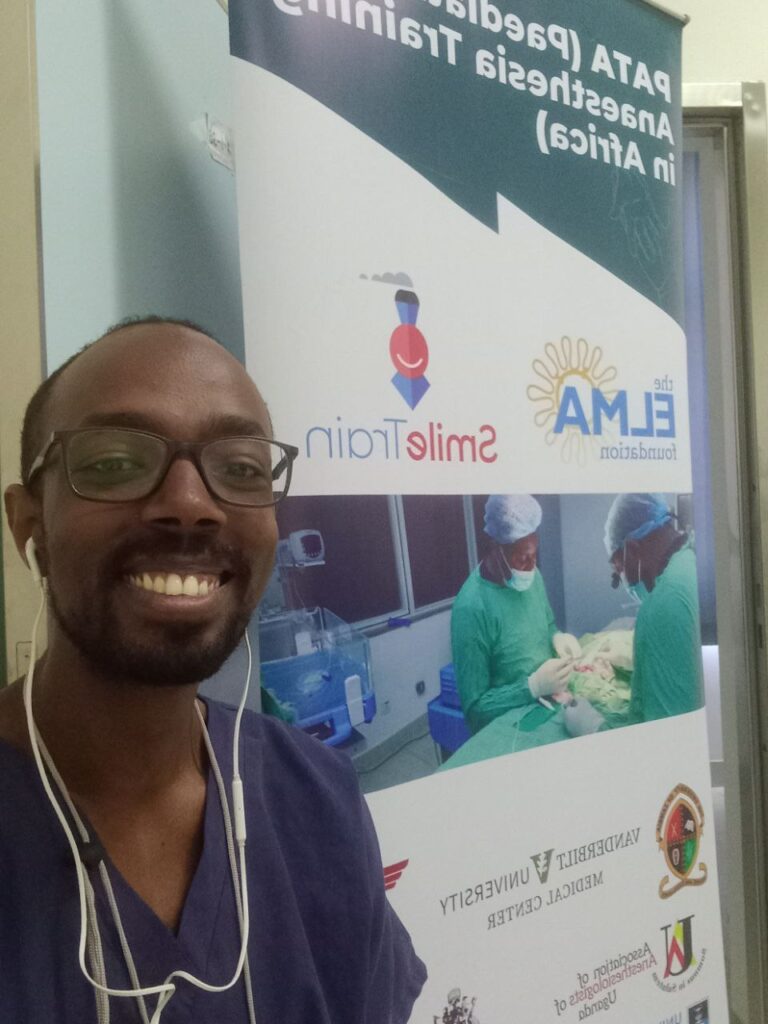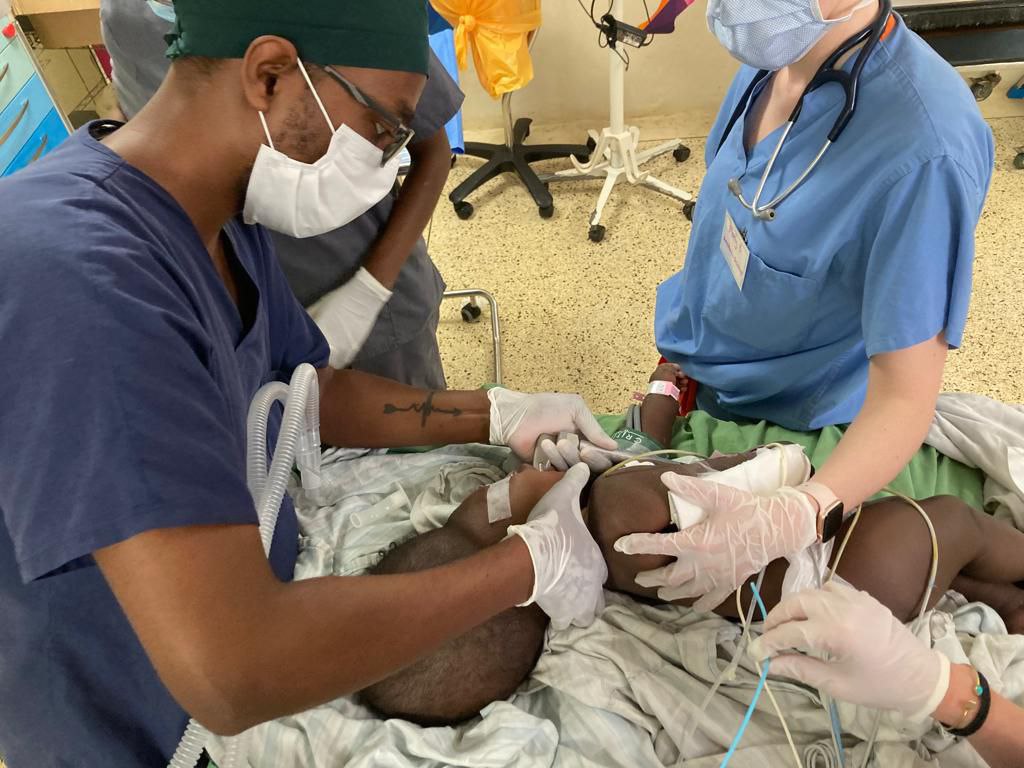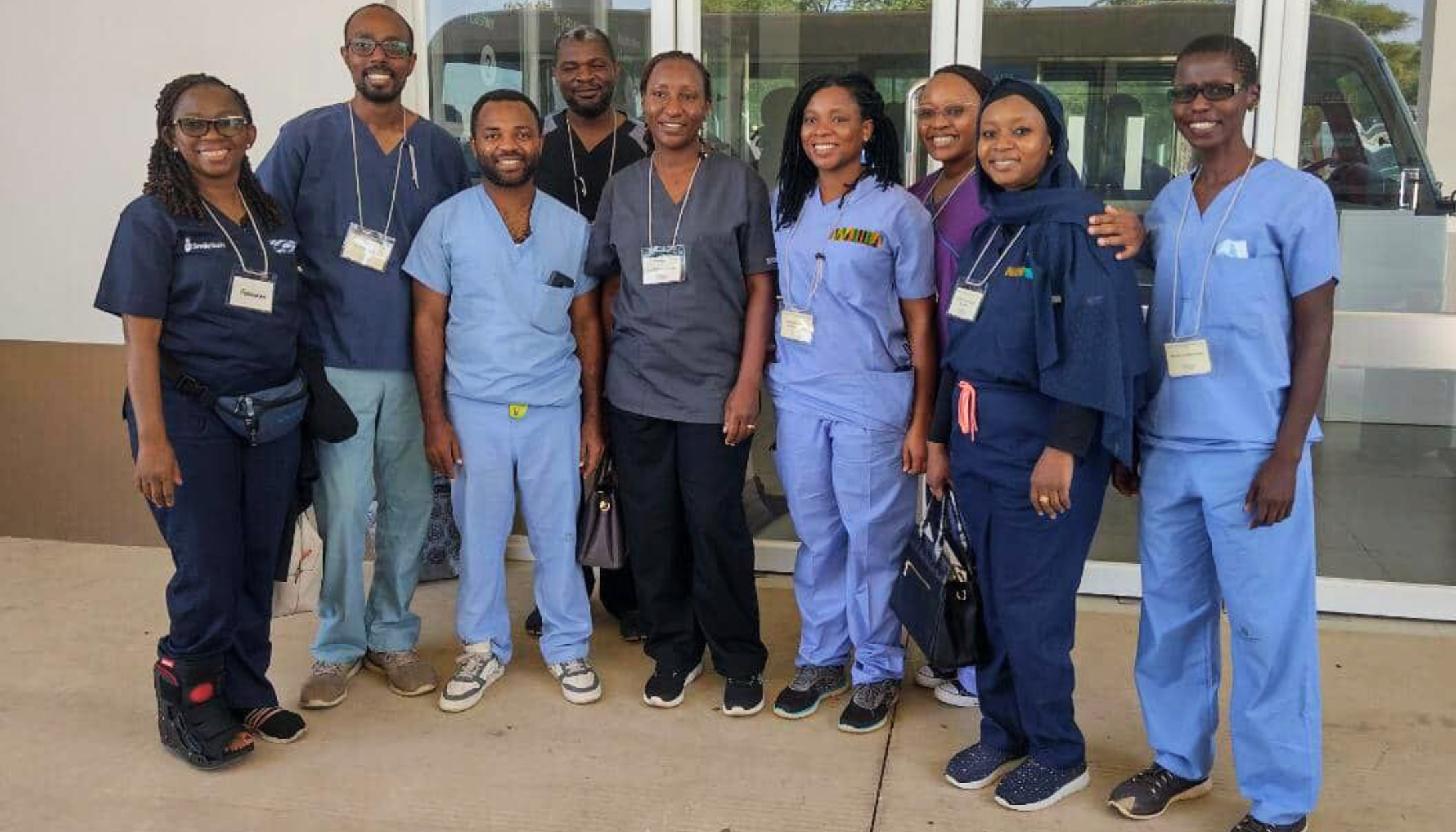We spoke to Dr Assefa about his fellowship in paediatric anaesthesia at the University of Nairobi, Kenya
WFSA: Could you please introduce yourself?
Dr Assefa: My name is Abinet Girma Assefa, I am an Ethiopian currently doing my paediatric Anaesthesia Fellowship at the University of Nairobi.
WFSA: What sort of work were you doing in Ethiopia?
Dr Assefa: As a GP I worked in a small town called Dembi Dolo. I mostly worked within the paediatric unit and enjoyed contributing to help build some structure in the wards. It was a resource-limited place but it was great to be part of a team that tried every day to organize what little we had in order to serve the community better.
Although safety was a concern then, I believe there is no other place I have worked in that I have deep respect for, especially for the medical professionals committed to serve a community within a resource limited setting.

WFSA: Why were you drawn to the field of anaesthesia?
Dr Assefa: I never imagined that I would do a specialty in Anaesthesiology. I always assumed that I would do my post-grad training in paediatrics. I figured my obsession with details at work would be a better fit for paediatrics but it turns out that Anaesthesiologists are borderline pathologically obsessed with details!
I’m grateful that my choices lead me to be part of this side of the medical field.
WFSA: How did you get into paediatric anaesthesia?
Dr Assefa: I did specialty training in Anaesthesiology at Saint Paul Hospital Millennium Medical College in Addis Ababa. During the war in Ethiopia, I did contract work with the federal emergency response unit for wounded soldiers.
After the war, I had the opportunity to pursue this sub-speciality training in paediatric anaesthesia through the WFSA.

WFSA: What is your working day like in Nairobi?
Dr Assefa: My working days are a combination of daily routines. Anaesthesiologists always arrive early and leave late. I have to make sure my emergency drugs are there, my equipment is ready and I have everything I need to start the day.
WFSA: What is the highlight of your fellowship so far?
Dr Assefa: The teamwork. Working well together is vital. As part of the anaesthesia team, you interact with the different teams within the OR. Patient care and safety wouldn’t be complete without the tough Nursing team in the Post Anaesthesia care unit.
It has been an eye opening experience. I’ve had the chance to learn from amazing teachers who have such a passion for teaching – at the end of my training, I hope to be a little more like them.
WFSA: What are your plans for the future?
Dr Assefa: I want to mentor future anaesthesiologists who will continue to expand the field of anaesthesia in Ethiopia. I believe anything done with passion will make a difference and I hope that this fellowship gives me the momentum to make a little difference when I get back home.
Title image of Dr Assefa (second from left) with his colleagues in the paediatric Anaesthesia Department, University of Nairobi, Kenya
Dr Assefa’s fellowship was sponsored by WFSA, the Society for Pediatric Anaesthesia and ImPACT Africa
The WFSA offers its Fellowships to anaesthesiologists from low and middle-income countries to increase their skillset and become leaders for anaesthesia once they return to their home countries. Upcoming WFSA fellowships and how to apply






